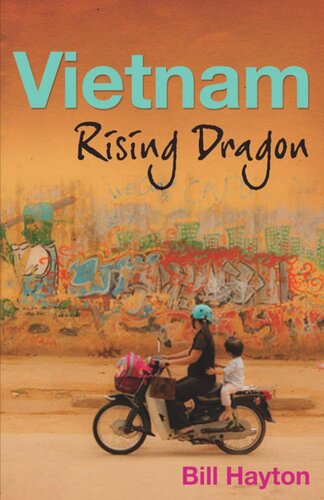

Most ebook files are in PDF format, so you can easily read them using various software such as Foxit Reader or directly on the Google Chrome browser.
Some ebook files are released by publishers in other formats such as .awz, .mobi, .epub, .fb2, etc. You may need to install specific software to read these formats on mobile/PC, such as Calibre.
Please read the tutorial at this link: https://ebookbell.com/faq
We offer FREE conversion to the popular formats you request; however, this may take some time. Therefore, right after payment, please email us, and we will try to provide the service as quickly as possible.
For some exceptional file formats or broken links (if any), please refrain from opening any disputes. Instead, email us first, and we will try to assist within a maximum of 6 hours.
EbookBell Team

4.3
98 reviewsThe eyes of the West have recently been trained on China and India, but Vietnam is rising fast among its Asian peers. A breathtaking period of social change has seen foreign investment bringing capitalism flooding into its nominally communist society, booming cities swallowing up smaller villages, and the lure of modern living tugging at the traditional networks of family and community. Yet beneath these sweeping developments lurks an authoritarian political system that complicates the nation’s apparent renaissance. In this engaging work, experienced journalist Bill Hayton looks at the costs of change in Vietnam and questions whether this rising Asian power is really heading toward capitalism and democracy.
Based on vivid eyewitness accounts and pertinent case studies, Hayton’s book addresses a broad variety of issues in today’s Vietnam, including important shifts in international relations, the growth of civil society, economic developments and challenges, and the nation’s nascent democracy movement as well as its notorious internal security. His analysis of Vietnam’s “police state,” and its systematic mechanisms of social control, coercion, and surveillance, is fresh and particularly imperative when viewed alongside his portraits of urban and street life, cultural legacies, religion, the media, and the arts. With a firm sense of historical and cultural context, Hayton examines how these issues have emerged and where they will lead Vietnam in the next stage of its development.